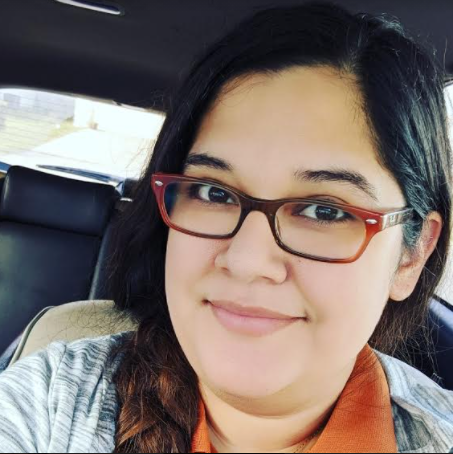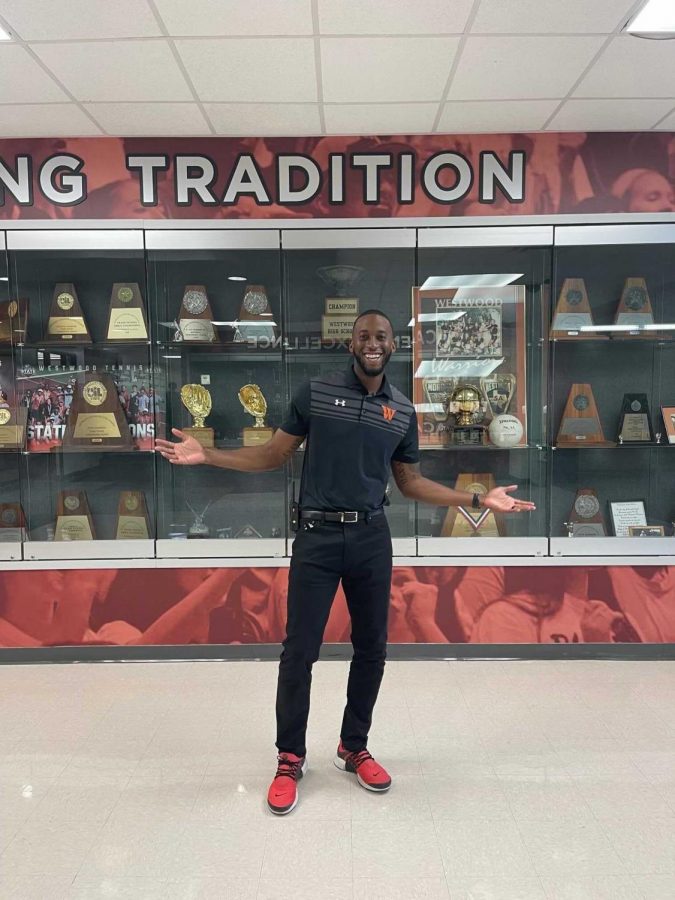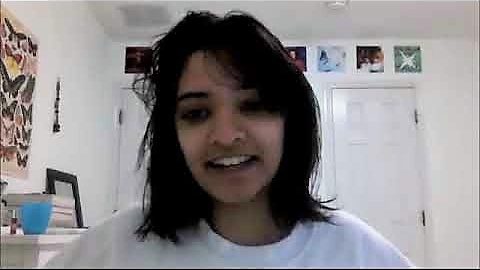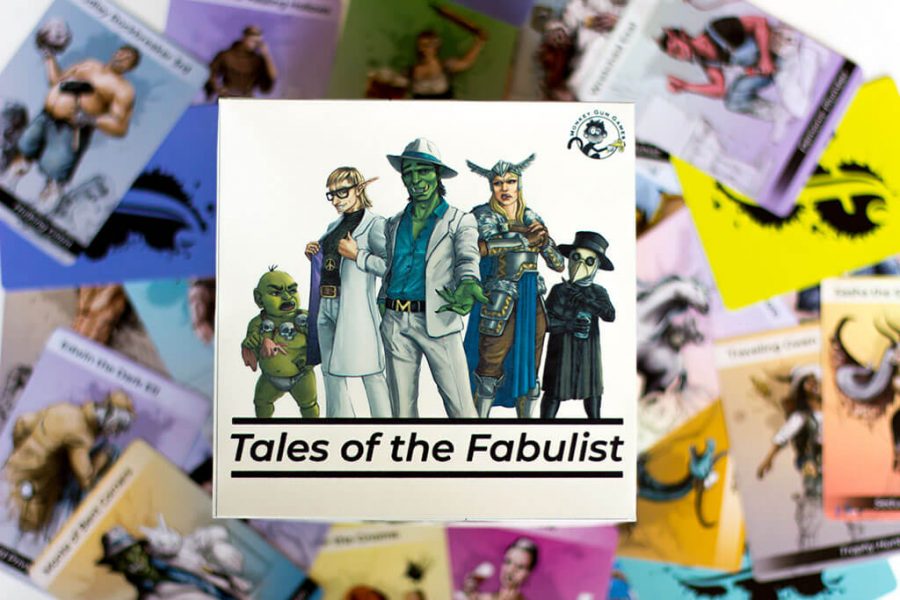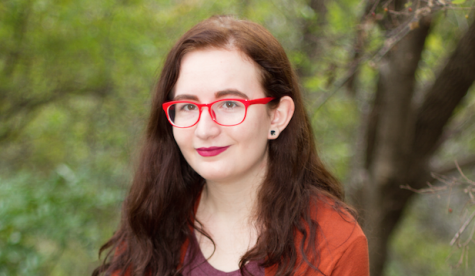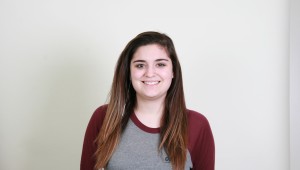 Being in high school is tough for most anyone, but identifying as LGBT+* can lead to unique obstacles many peers won’t ever have to experience.
Being in high school is tough for most anyone, but identifying as LGBT+* can lead to unique obstacles many peers won’t ever have to experience.
For Cierra Ochoa ‘17, however, the high school experience has helped more than hurt her in the journey of becoming more comfortable with her identity.
Ochoa identifies as lesbian, and has identified as such since she was in 2nd grade. Despite multiple obstacles faced both at school and in the public sphere, Ochoa has stayed true to herself and her identity.
“I feel like [my orientation] makes me me, and it makes me kind of comfortable with who I am. I hang out with a lot of guys because that’s where I feel most comfortable, but then again it makes you feel kind of judged here and there,” Ochoa said. “Some people don’t take this lightly, so telling some people is kind of hard. But, I’m pretty open about it.”
The lives of LGBT+ people vary dramatically around the United States, but Ochoa believes that Austin is very knowledgable about the LGBT+ community compared to other places.
“Being on the LGBT+ spectrum is definitely different from other states. My girlfriend lives in Nevada right now, and she also used to live in Arizona. In the Austin area, people seem more aware of LGBT communities, but outside of Austin, it gets a little harder. People start to think ‘oh that’s not normal’, and ‘that’s not okay’. In Arizona, it was hard,” Ochoa said. “Everywhere my girlfriend and I went, people were staring and would whisper to each other. We went to Dairy Queen one time, and this group of guys looked disgusted. It was uncomfortable, but then again I felt comfortable because I knew that what I was doing was okay. Nevada’s really great; people don’t judge you as much.”
Because she has identified as lesbian since elementary school, Ochoa had trouble relating to her peers and being understood by them. Now that she’s in high school, Ochoa feels more comfortable with expressing her orientation.
“It’s a lot easier being LGBT+ in high school. In elementary school, all my friends thought I meant I liked them as friends, but when some of them found out I liked them more than friends, they thought it was awkward,” Ochoa said. “Middle school was okay. I knew a few people that were bisexual, and we hit it off and did our own thing. And then high school came along, and everything seemed really easy. I felt more normal and like myself.”
Ochoa stressed how important student-run LGBT+ organizations are. Westwood’s sole organization for LGBT+ students is the Gay-Straight Alliance (GSA), which is part of the National GSA Network.
“When Gay-Straight Alliance first started, Westwood had a need to provide a safe place for LGBTQ+ students,” GSA sponsor Ms. Meg Freeland said. “That idea continues today, but looks differently. The bullying, harassment, and physical altercations are infrequent; however, these students still need the emotional support of family, friends, and staff.”
Despite a busy schedule, Ochoa tries to attend GSA when she can.
“Definitely join GSA. It’s great and very welcoming. It’s a warm-spirited place, and everyone’s really supportive,” Ochoa said. “All of the members are great to talk to about anything on your mind, and they’ve got a ton of stories to tell. I was in GSA at my old school all through the year, and then I was at GSA this year until I got a job. Now I go whenever I can.”
Besides GSA, Ochoa finds inspiration and motivation from various LGBT+ role models. Among Ochoa’s favorite LGBT+ role models are talk show host Ellen Degeneres and pop singer Adam Lambert. Ochoa also looks up to her uncle, known affectionately as “Auntie Kevin”.
“[Auntie Kevin]’s my favorite. He lives in California, and he actually got me into pride festivals and parades and stuff like that,” Ochoa said. “He actually took me to the Los Angeles Pride Fest that Demi Lovato was at in 2014.”
Despite school organizations devoted to helping LGBT+ students finding a sense of community and a growing pool of LGBT+ role models, there are many issues that LGBT+ youth face across the United States. According to the Center for Disease Control and Prevention (CDC), LGBT+ youth are at an increased rate of violence; dating abuse; sexual assault; bullying; suicidal thoughts, behaviors, and suicide; depression; and substance use, compared to their cisgender** heterosexual peers. The CDC advises that schools provide a positive environment for LGBT+ students, which can help lower the aforementioned rates. Ochoa agrees with the CDC, and believes that a few things are key to creating an LGBT+-friendly environment at Westwood.
“Allowing LGBT+ students in the community to have a say in issues is a big priority Westwood should have, along with general support for LGBT+ students,” Ochoa said. “Yearbook’s doing a good job with covering LGBT+ things. It’s pretty progressive here.”
Although Ochoa believes that Westwood is a very LGBT+-friendly environment, she had some negative experiences at her old high school.
“At my last school, we had ten people in my GSA. One of my best friends and I were in yearbook there, and we wanted to do a piece on our girlfriends and the LGBT+ community. The director for the yearbook said no, and that it would make other students feel uncomfortable,” Ochoa said. “That was very eye-opening for me, and so I dropped yearbook quickly. My friend and I got past it eventually; we knew that it would happen, but we also knew that everything would be okay.”
*LGBT+ is the shortened form of Lesbian, Gay, Bisexual/Romantic/Gender, Transgender, Queer/Questioning, Intersex, Asexual/Romantic/Gender, and Pansexual/Romantic/Gender. There are many more gender identities and sexual orientations than the aforementioned list – as well as many more acronyms for collective gender identities and sexual orientations, such as MOGAI and MOGGI- but LGBTQIAP+, with the plus notating the various other identities and orientations, is the most widely accepted and used acronym.
**Cisgender and cissexual describe related types of gender identity where individuals’ experiences of their own gender match the sex they were assigned at birth. Sociologists Kristen Schilt and Laurel Westbrook define the term cisgender as a label for “individuals who have a match between the gender they were assigned at birth, their bodies, and their personal identity”. Cisgender/cissexual is sometimes seen as a complement to transgender.

